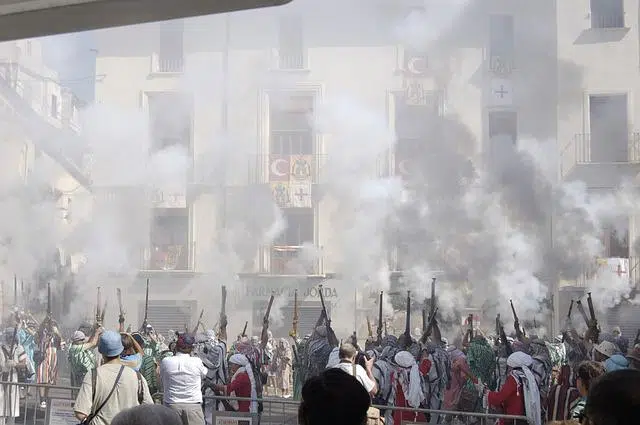
The uprising is a rebellion against a government or authority.
The act and result of uprising is called an uprising : fomenting a protest , inciting sedition . The term comes from the Latin word sublevatio .
Rebellion
The uprising is a rebellion against a government or authority. Those who carry out the action can be civilians or military .
It is important to mention that the idea of uprising is similar to others such as revolt , revolution or mutiny . Although they are often used interchangeably, each notion has a specific meaning.
He who revolts demands a change from those in power or refuses to comply with his instructions . A revolt , meanwhile, is a spontaneous group uprising against discipline or order. When the movement is disorderly and affects a limited area , it is called a riot .
The revolution is the most advanced stage of this type of actions, since it is associated with a violent and profound change in the economic, social and political structures of a society. It can be said, in this framework, that uprising, revolt and mutiny are less serious instances than a revolution.
Catalonia Uprising
Take the case of the uprising in Catalonia , which took place between 1640 and 1652 . This episode arose from the discontent of Catalan peasants over the conduct of the members of the royal army, whom they accused of committing various abuses and abuses . One of the consequences of this uprising was the signing of the Treaty of the Pyrenees .
Other names by which this page of Catalan history is known are the following: War of Catalonia , War of the Reapers and Revolt of the Catalans . The aforementioned peace treaty was signed by the monarchies of Spain and France, and placed under the sovereignty of the latter the counties of Roussillon and Cerdanya , both former component territories of the Catalan principality.
The beginning of this uprising occurred with the violent meeting known as Corpus de Sangre , which took place in the year 1640, which ended with the provoked death of the Count of Santa Coloma, until then the viceroy. The protagonists of this riot were reapers and peasants who were not willing to continue enduring the abuses by the military .
As an interesting fact, one of the arguments that had the most weight when justifying this uprising was religious in nature. Its protagonists, therefore, accused the royal Army of different sacrilegious acts towards the Blessed Sacrament , among which are the sexual abuse of many women and the fires caused in several churches.
Uprising of the «Gaucho» Rivero
It is known as the Gaucho Rivero uprising , meanwhile, an uprising that occurred in Puerto Soledad ( Malvinas Islands ). In 1833 , Antonio Rivero led an uprising against the British authorities on the island due to the poor living conditions of local workers. The rebels were finally arrested and expelled from the island territory.

The terms "revolution", "riot" and "revolt" are used synonymously with "uprising".
Before continuing, it is important to note that in English history sources this uprising is known as "The Puerto Luis Murders." In this context we must talk about Luis Vernet , the oldest commander of the Malvinas Islands. He was born in Germany in 1791 but became an Argentine citizen. His objective was to form a colony in the archipelago, something he achieved and thus began his military political career.
In addition to his own family, which included his wife and his daughter, born on the islands, among the settlers was Antonio Rivero , the most important figure in the uprising. When the British arrived in the Malvinas, they expelled the Argentine authorities and took control of the territory. Only twenty-two Argentines remained from the aforementioned group, although Vernet himself left in 1832 and never returned.
